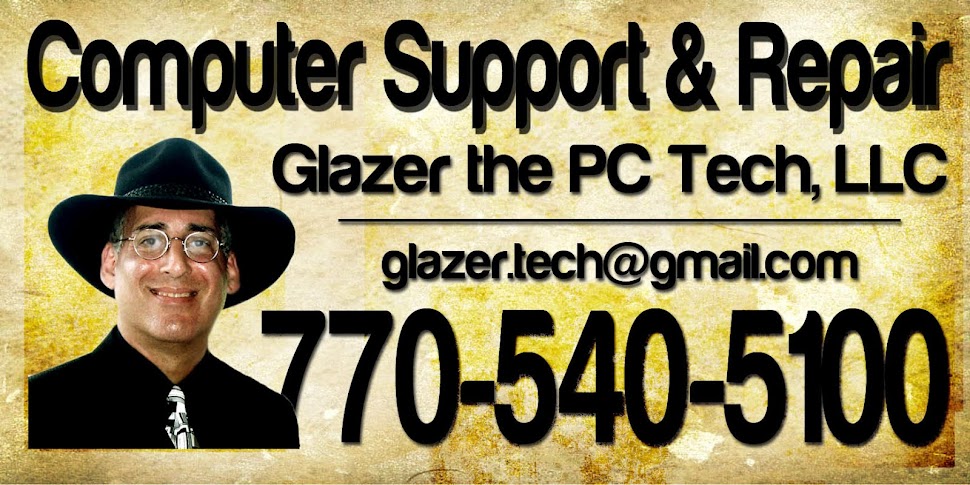POSTED: October 16, 2010 1:00 a.m. | ||
Buy Refurbs and Save
Everybody likes a bargain. But even as the cost of computers and other electronics have come down, there is still another way so save a few bucks on them. One word: Refurbs. No, don't stop reading. I know that many of you have this image of a refurbished item being something that a couple of children played dodgeball with, got it all sticky, broke some parts, lost some others and then had it returned by their parents. Well, that's just not the case. Refurbished electronics, or refurbs as they are called, can be a variety of things. They are items that were purchased new and for whatever reason returned, usually within 30 days. They could have been broken or just not liked. For whatever reason, they are inspected, reconditioned, repaired if necessary, repackaged and resold at a considerable discount. Some of these could have been store demos, others simply overstock items. Demos may have small scratches, but are otherwise fine. I always ask if there is scratch-and-dent room in a store or look for one on a web site. A scratch equals a discount. When a store has shelves full of last year's laptops and the new models come in, the old ones are considered discontinued or overstock items. What were new models now become obsolete with the new line coming in. They are now also considered refurbs, even though they are really new and never used. If you don't need state-of-the-art, you've got yourself a bargain. Open-box returns are simply that. Someone got a computer and it turned out to be the wrong model or perhaps a color they didn't like so they sent it back. Now it's a refurb. I recently bought a refurbished printer at a huge discount. When I opened the box, all of the protective tape was still on the device and it looked brand new. Then I realized why it was returned. This particular printer took some assembly to make it function. Not only did I have to install the cartridges, I had to install the print head, the paper loader, and the power supply, and then configure it. After 20 minutes or so, I could finally use it. For me it was no big deal. That's what I do. But for someone who is not technically inclined, to come upon something like that, it's back in the box and back to the store. Some consumers simply want an out-of-box experience. Open it and use it. So items like that become refurbs. Off-lease items are computers, printers or whatever that were leased to companies and then returned at the end of their contracts. They are reconditioned and then sold as refurbs. You may find computers that were ordered custom-made and never picked up by the consumer. Now they're refurbs. There are of course items that were broken and returned. But these go through a rigorous revamping. Whatever is found wrong is fixed. Only 10 percent of returned items are taken apart and resold for their parts. Everything else is reconditioned and sent back to the stores as refurbs. Just because thing are sold at a discount doesn't mean they are not covered under a warranty. Most items have the same coverage that a new item would. At the least, you'll have 30 days to return the item if you are not satisfied with it. Always ask about the coverage. Some companies will even sell you an extended warranty on a refurb. That is telling you they have faith in that item and are willing to back it. I have one that states if I return it three times for the same reason, it will be replaced. There are lots of websites that deal with refurbs. Dell computers have a ton of desktops and laptops on Overstock.com is another site to consider. Much of what they sell is refurbished items. Read the fine print and you'll see. Often they will tell you if it is new or was an open-box return of a demo. AT&T sells refurbished cell phones on its website. Refurbdepot.com sells a little bit of everything on theirs. There is tigerdirect.com and newegg.com that have the occasional refurbished item. Whatever store or site you go to, ask if they have refurbs and what type of warranties comes with them. Things to watch out for are crushed boxes or dented corners on them; they could have been dropped leading to further damage. If you get a computer delivered to you like that, tell the driver to note it on the invoice. You may open the box and find a computer D.O.A. By purchasing a refurbished device you can save anywhere from 20 percent to 80 percent. Often it is identical to the new item. Heed my advice and you may save a couple of bucks next time you're computer shopping. Should you forget, I'll write it again in another column in a few months - refurbished. Arthur Glazer is a freelance writer and computer technician in Gainesville. His column appears biweekly. Arthur welcomes your computer questions and ideas for future columns. |


 uter Care: Online banking is great, if you take precautions
uter Care: Online banking is great, if you take precautions